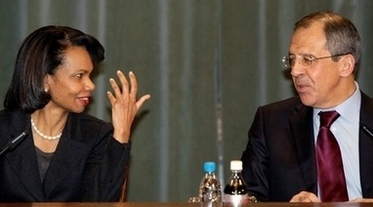US missile defense still faces obstacles
(Agencies)
Updated: 2008-03-26 16:39
Updated: 2008-03-26 16:39
WASHINGTON -- Russia has failed to shoot down the Bush administration's missile defense ambitions. But the high-priced project -- a derivative of the "Star Wars" plan that President Reagan unveiled 25 years ago this week -- still faces hostile political forces at home and abroad.
The aim of developing a missile shield is at the core of President Bush's defense policy, although the terrorist attacks of Sept. 11, 2001, showed that an enemy does not need rocket science to penetrate US defenses.
|
|
After high-level meetings in Moscow last week, the Russians remained opposed to the newest twist in US missile defense -- extending the network of missile interceptors and radars to central Europe. But there also were strong signs that Moscow is now resigned to living with it on its doorstep.
This week a Russian delegation is in Washington to hold follow-up talks with officials from the Pentagon and State Department -- a further indication that Moscow is taking a less confrontational approach.
Less clear are answers to other key questions: Will the next US president keep the project on track? And, if the system eventually is completed, will it work in the event of a real attack by long-range missiles?
Of the three leading presidential candidates, Sen. John McCain is a clear supporter of missile defense. He has described it as critical to protection of the United States from adversaries like North Korea and Iran, and as a "hedge against potential threats" from Russia and China.
Sen. Barack Obama has spoken skeptically of missile defense as developed during the Bush administration, saying it requires much more vigorous testing to ensure that it would work and be cost-effective. He has not said he would stop the planned European sites, but he has questioned the timing.
"If we can responsibly deploy missile defenses that would protect us and our allies, we should -- but only when the system works," Obama said last summer.
Sen. Hillary Rodham Clinton has questioned the technological progress.
"Senator Clinton has expressed concern about the Bush administration's expenditure of billions of dollars on an unproven ballistic missile defense system that has not been adequately tested or proven to work," said Clinton spokesman Philippe Reines.
History has shown that a change of administrations in Washington can have a profound effect on missile defense. Reagan's speech outlining the strategy came on March 23, 1983. When President Bill Clinton was elected in 1992 his first defense secretary, Les Aspin, quickly dismantled the program, declaring that he was taking the "star" out of "Star Wars."
Shortly before he left office, Clinton decided against deploying an initial system of missile defense. President Bush reversed course, vowing to build effective missile defenses and opting out of the 1972 Anti-Ballistic Missile Treaty in order to escape legal prohibitions on more expansive testing.
|
||
|
||
|
|
|
|


